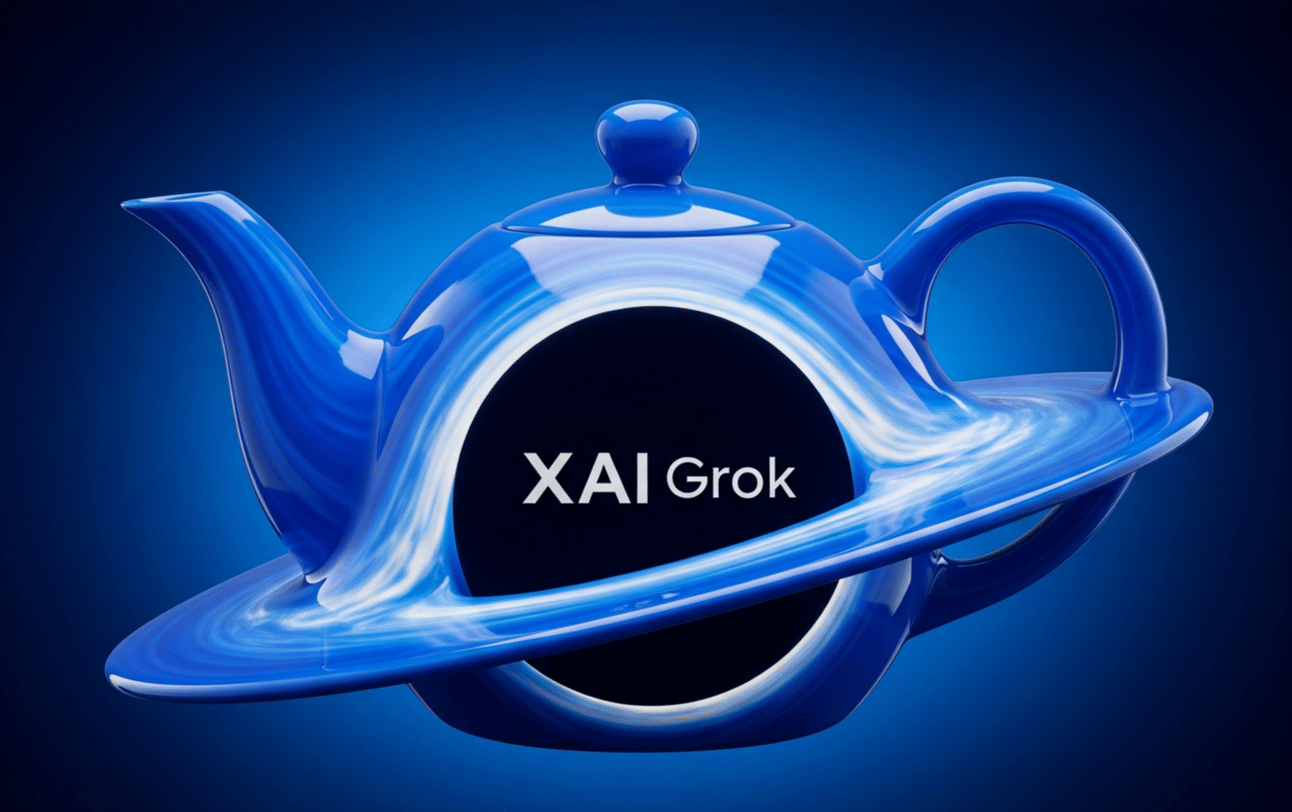Happy Monday. Do you need another reason to love David Attenborough? Back in the 1960s, when Attenborough was controller of BBC2, he oversaw the launch of colour TV in the UK. As Wimbledon prepared to be broadcast in full colour for the first time, producers realised that traditional white tennis balls were hard to see on screen—especially against green grass.
So, after some testing, the now-familiar "optic yellow" was chosen for maximum visibility. While the International Tennis Federation made it official in 1972, it was Attenborough’s push for colour broadcasting that set the change in motion. Just another unexpected legacy from the man who brought us both planet Earth and easier-to-watch tennis!
MARKETS
| FTSE 100 | £8,941.12 | +1.53% |
| FTSE 250 | £21,613.25 | +0.35% |
| GBP/EUR | €1.1541 | -0.41% |
| GBP/USD | $1.3499 | -1.11% |
| S&P 500 | $6,259.75 | +0.48% |
Data: Google Finance, 5-day Market Close
Notable UK earnings this week: Frasers Group (FRAS), Bridgepoint Group (BPT), Ocado (OCDO), Cohort (CHRT.
Notable US earnings this week: JP Morgan Chase (JPM), Netflix (NFLX), Johnson & Johnson (JNJ), Bank of America (BAC), Wells Fargo (WFC), Morgan Stanley (MGS).
📈📉
PROJECT WATCH
🏗️ £800m revamp for Poplar estate in East London. Read more
🔌 Surveys set to start on Ireland-Wales interconnector. Read more
BUSINESS & FINANCE
Monzo picks up a £21m fine
Just in time for summer snaps of Buckingham Palace and 10 Downing Street, it turns out Monzo was offering more than just the postcard view — apparently, you could sign up for a bank account using them as your home address. Handy if you’re one of the corgis or part of Larry the Cat’s real estate portfolio.
The Financial Conduct Authority (FCA) has fined Monzo £21 million for repeatedly breaching anti-money laundering rules. Why? Because between 2020 and 2022, the digital bank signed up over 34,000 high-risk customers, some of whom supplied residential addresses that read like they were plucked from a royal family fanfic. The FCA was less than amused, calling Monzo’s customer checks “inadequate” and “unable to counter actual and potential financial crime risks effectively.” Translation: they left the vault open and invited chaos in for biscuits.
This isn’t the first fintech slap on the wrist recently. Starling Bank was fined £29 million just last year for equally woeful screening practices. It seems the neon-lit promises of digital banking haven’t quite mastered the fundamentals—like making sure your customer isn’t trying to launder money while living at Windsor Castle.
Economy shrinks again
May brought more than just hay fever and half-hearted BBQs — the UK economy shrank again, by 0.1%, marking the second consecutive month of contraction. That’s not just a wobble; it’s a bit of a faceplant, especially for Chancellor Rachel Reeves, who’s now got the unenviable task of cheerleading under grey skies.
Plots were thickening faster than builders’ tea in May, with industrial production slumping 0.9% and construction down 0.6%. Manufacturing, particularly of pharmaceuticals and motor vehicles, took a nosedive. Perhaps Trump’s now-paused tariff tantrum in April sparked a pharma rush that’s now run out of puff.
The service sector, Britain’s economic workhorse, managed the economic equivalent of a limp: up 0.1%, just enough to say "I'm trying!".
POLITICS
Strikes, scalps & stadium shenanigans
Resident doctors sharpen their scalpels for yet another five-day strike (the twelfth since 2023, but who’s counting?), Health Secretary Wes Streeting is stuck on repeat, insisting 5.4% is the final offer. That’s despite medics claiming their pay’s still 20% down on 2008 levels, and a general vibe in the NHS that makes “hanging by a thread” feel oddly optimistic.
In a plot twist worthy of Holby City, IVF pioneer and BMA darling Lord Robert Winston has resigned in protest, warning the strikes risk “damaging trust”. Meanwhile, polling reveals public sympathy for resident doctors is evaporating faster than an NHS dentist appointment, now just 26%, down from 52% a year ago.
Elsewhere, Parliament has turned its attention from poorly-paid professionals to poorly-behaved punters. A new bill cracking down on ticketless football fans is cruising through Westminster, set to make unauthorised entry to matches a criminal offence. Tailgating, bribing stewards, and pulling a “Wembley 2021” will now earn you more than side-eyes - you could face a match ban and a £1,000 fine. After all, storming a stadium isn't exactly the beautiful game.
Charging, chicanery & car park chaos
Let’s talk parking: a nightmare so British, it should have its own tea blend. After drivers were slapped with fines upwards of £11,000 for dawdling near dodgy meters or entering digits like ‘0’ instead of ‘O’, the government has decided enough’s enough.
A new Private Parking Code of Practice is now in the works, aiming to curb “shark-like” operators and the industry's delight in confusing terms, tiny signage, and payment machines with the temperament of a moody teen. Still, the AA warns the code doesn’t go far enough, branding it a limp attempt to rein in an industry with more claws than common sense.
And while we’re on the subject of automotive angst, the government is flinging £63m at EV charging infrastructure. Another £700m in subsidies is reportedly on the way, but mostly for affordable UK-made EVs. The goal? Get us to 28% electric car sales this year. The reality? Just over 5% of all cars on UK roads are electric.
ACROSS THE POND
Tariffs against the EU - here we go again
Donald Trump’s dusted off his tariff playbook again, this time aiming a 30% swing at the European Union's imports starting 1 August. The result? A potential price hike for US consumers on everything from French camembert to German gadgets. It’s not just the EU though; our amigos south of the US border in Mexico are slated for similar treatment, all under Trump’s banner of national security.
Trump, in one of his signature Truth Social posts (obviously where important policy changes are announced), declared the US had dallied too long in its lopsided trade dance with Europe. Meanwhile, Ursula von der Leyen, EU's head honcho, hinted that countermeasures could be on the cards if Uncle Sam doesn’t ease up. She reassured Brussels hopefuls that talks are ongoing, even if it feels like nailing jelly to a wall.
Chips ahoy! Nvidia win the race to $4tn
Nvidia has done it! The very first stock market-listed company to reach a $4 trillion value. The Wall Street wunderkind surpassed Apple's market cap, achieving this meteoric milestone with a chipper 2% stock hike at the opening bell on Wednesday. It seems like just yesterday they smashed the $3 trillion ceiling, all thanks to the AI gold rush. Clearly, Nvidia's market charm rivals that of ChatGPT at a virtual pub quiz.
Since its 1999 debut, Nvidia's share price grew an astronomical 409,825%. They've had more ups and downs than a Brexit negotiation, but nothing that could overshadow such impressive gains. Their role in AI technology, akin to Shakespeare in English lit, remains indisputable, despite the odd hiccup here and there.
TECH

Red rocks & robo-rants. A Martian, a Musk, and a Misfire
Somewhere between Mars and Manhattan, a space rock the size of a large leg of lamb is going under the hammer at Sotheby’s. NWA 16788 (catchy, no?) is the largest known slice of the red planet to crash-land on Earth, and now it’s aiming for a new orbit: the bank accounts of the very rich, with a starting price tag of $2m. It’s rare, red, and roughly 70% bigger than any other Martian meteorite found to date, the Beef Wellington of space rocks.
Meanwhile, here on Planet Earth, Elon Musk’s chatbot, Grok, recently upgraded to version 4, had to be reeled in after spouting antisemitic nonsense online. The latest model includes a $300/month “SuperGrok Heavy” subscription.
Minus the minor setback, Grok4 has beaten all other AIs in all the benchmarks, making it the current world beater. All this, just days before a major AI race heats up with OpenAI’s GPT-5 looming large.
Voices, vultures & virtue
Back to humanity, real humans are trying to stop their own voices from becoming accidental AI stars. In a ruling fit for a Black Mirror special, a US judge just green-lit a lawsuit against Lovo, an AI voice startup accused of turning two unsuspecting voice-over artists into synthetic Siri siblings, without their consent.
Paul Lehrman and Linnea Sage were told their dulcet tones were for “internal academic use”. Instead, they found their cloned vocal cords chirping away in ads and fundraising videos like budget Bond villains. Lehrman was paid £890; Sage, just £600 - about enough to buy a round of drinks in central London or one-fifth of a Martian meteorite, if you're curious.
The irony? Lehrman discovered his own AI voice talking on a podcast about how AI could replace humans in the industry. It’s like hearing your own eulogy performed by your evil twin.
WORLD
Survival of the stubborn
It’s been a blisteringly bad week for both students and solo adventurers, with China and Australia both serving up heat in their own (equally distressing) ways. In China, students are battling a brutal heatwave, dubbed “dog days”, by squatting in supermarkets and pitching tents in libraries.
Meanwhile, down under, one German backpacker pulled off a real-life Bear Grylls feat: surviving 11 nights in Australia’s outback with nothing but puddles, a cave, and sheer bloody-mindedness. Carolina Wilga wandered 24km from her bogged van before being found barefoot, bitten, and bruised, but alive. Police credited “sheer luck”, while the rest of us are now reconsidering every life choice that has us indoors this July rather than sunbaked and shoeless in Western Australia.
And over in South Korea, heat wasn’t the headline, but resolution was. After a 17-month boycott, medical students are returning to class following a government U-turn on expanding medical school admissions.
Beam me up, Beijing
Germany accuses China of going full sci-fi villain: allegedly firing a laser from a warship at a German reconnaissance plane. China, naturally, says, “Wasn’t us”, adding that Germany should adopt a “fact-based attitude”.
The diplomatic fallout has been swifter than a Wimbledon final with Germany summoning ambassadors, the EU wagging fingers, and Beijing offering calm but noncommittal explanations.







